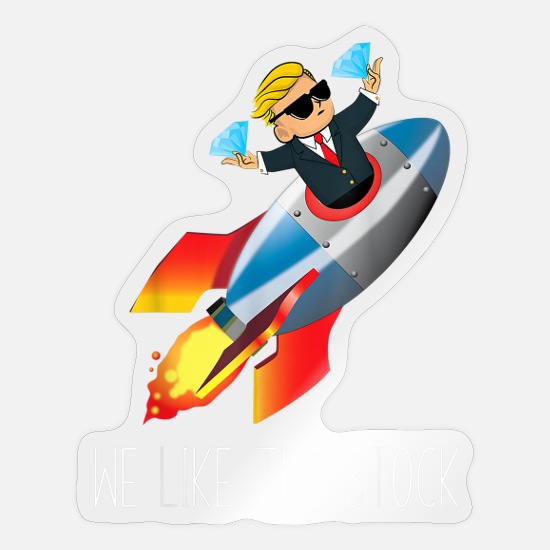Assessing The Impact Of Trump's Trade War: A Wall Street Bets View

Table of Contents
The Initial Shockwaves: Market Reactions to Tariff Announcements
Volatility and Uncertainty
The announcement of tariffs under Trump's trade policies triggered immediate market volatility. Uncertainty reigned supreme as investors scrambled to assess the potential impact on various sectors.
- Technology: Companies heavily reliant on global supply chains, like Apple and Qualcomm, experienced significant price swings as tariffs disrupted their operations.
- Agriculture: The agricultural sector, a key target of retaliatory tariffs from China, suffered immensely. Soybean and pork prices plummeted.
- Steel and Aluminum: Initially, domestic steel and aluminum producers saw a boost, but this was short-lived as global trade tensions escalated.
The Dow Jones Industrial Average, S&P 500, and Nasdaq all experienced periods of sharp declines following major tariff announcements. For instance, the Dow dropped over 600 points on a single day in August 2019 following escalating trade tensions with China. This volatility underscores the immediate and significant impact of Trump's trade war on investor confidence.
The Role of Speculation and Reddit's Influence
Wall Street Bets, the infamous subreddit known for its meme-stock frenzy and contrarian investing strategies, was far from immune to the impact of Trump's trade war. The subreddit became a forum for speculation and debate regarding the winners and losers of the trade war.
- Discussions frequently centered around companies directly affected by tariffs, such as those in the agricultural and manufacturing sectors.
- Some "meme stocks" saw increased trading volume and price fluctuations driven by speculation fueled by discussions on Wall Street Bets. The sentiment on the platform often influenced short-term market movements, albeit sometimes irrationally.
The influence of Wall Street Bets should not be underestimated. While not always a reliable indicator of long-term market trends, its collective sentiment played a role in amplifying both the positive and negative impacts of Trump's trade war on specific stocks and sectors. Analyzing Wall Street Bets' reaction provides a unique lens into the emotional and speculative aspects of the market during this turbulent period.
Winners and Losers: Sector-Specific Analysis of Trade War Impacts
Industries Benefiting from Protectionist Policies
While many industries suffered, some sectors experienced short-term gains due to Trump's protectionist policies.
- Domestic Manufacturing: Certain domestic manufacturers of steel and aluminum benefited from increased demand driven by tariffs on imported goods. This provided a temporary competitive advantage, leading to increased production and, in some cases, job growth.
- Specific examples of companies experiencing a temporary boost include some domestic steel producers who saw a surge in orders due to the reduced competition from cheaper imports.
However, these gains were often offset by increased costs associated with retaliatory tariffs and disruptions to global supply chains. While the data showed short-term profits in some cases, the long-term sustainability of this model remained questionable.
Industries Hardest Hit by Tariffs and Retaliation
Many sectors suffered significant losses due to Trump's trade war and retaliatory tariffs imposed by other countries.
- Agriculture: American farmers bore the brunt of retaliatory tariffs imposed by China, leading to substantial losses in exports and decreased farm income. The soybean industry, in particular, was heavily impacted.
- Technology: The tech sector experienced disruptions to global supply chains and increased costs due to tariffs on imported components. This negatively impacted manufacturing and consumer prices.
The data clearly illustrates the negative economic impact on affected sectors. The trade war led to job losses, reduced exports, and increased prices for consumers. The long-term consequences are still being assessed.
Long-Term Implications: Assessing the Lasting Effects on the Economy
Inflationary Pressures
Trump's trade war contributed to inflationary pressures in the US economy.
- Increased tariffs raised the cost of imported goods, leading directly to higher prices for consumers.
- The Federal Reserve responded to these inflationary pressures by implementing monetary policy adjustments, though the effectiveness remains a subject of ongoing debate.
Data on inflation rates during and after the trade war period showed a clear upward trend, highlighting the inflationary impact of the tariffs. The full extent of these effects is still unfolding.
Geopolitical Repercussions
Trump's trade war had far-reaching geopolitical consequences.
- It strained relationships with key trading partners, leading to a decline in international cooperation on trade issues.
- It caused significant disruptions to global supply chains, forcing companies to reconsider their sourcing strategies.
The lasting impact on global trade and international cooperation is still being evaluated. The trade war demonstrated the fragility of global trade agreements and the potential for unilateral trade actions to destabilize the international economic order.
The Lasting Legacy of Trump's Trade War: A Wall Street Bets Retrospective
This analysis has highlighted the significant impact of Trump's trade war on various sectors, investor sentiment, and the broader economy. The initial shockwaves of tariff announcements triggered market volatility, while Wall Street Bets provided a unique lens into the speculative frenzy surrounding affected stocks. Certain industries benefited temporarily from protectionist policies, while others suffered severe economic hardship. The long-term effects, including inflationary pressures and geopolitical repercussions, continue to unfold.
Key Takeaways: Trump's trade war serves as a stark reminder of the unpredictable nature of the market and the profound influence of political events. The experience highlighted the interconnectedness of the global economy and the potential for significant disruption caused by protectionist policies.
Call to Action: Continue researching the lasting effects of Trump's trade war and share your insights within relevant online communities like Wall Street Bets. Discuss how this period reshaped global trade and investment strategies. Let's continue the conversation and learn from the lessons of this impactful era in global economics. How do you think Trump's trade war will ultimately be remembered within the context of Wall Street Bets' history?

Featured Posts
-
 Top 10 Best Office Chairs Of 2025 A Comprehensive Guide
May 29, 2025
Top 10 Best Office Chairs Of 2025 A Comprehensive Guide
May 29, 2025 -
 When To Plant Hyacinth Bulbs For Beautiful Spring Blooms
May 29, 2025
When To Plant Hyacinth Bulbs For Beautiful Spring Blooms
May 29, 2025 -
 Jwnathan Tah Yqtrb Mn Alandmam Ila Bayrn Mywnkh
May 29, 2025
Jwnathan Tah Yqtrb Mn Alandmam Ila Bayrn Mywnkh
May 29, 2025 -
 The Funniest Tv Performance Of 2025 Bryan Cranstons Silent Masterclass
May 29, 2025
The Funniest Tv Performance Of 2025 Bryan Cranstons Silent Masterclass
May 29, 2025 -
 British Pop Star Robbie Williams Performs At Cruise Ship Launch In Malaga
May 29, 2025
British Pop Star Robbie Williams Performs At Cruise Ship Launch In Malaga
May 29, 2025
